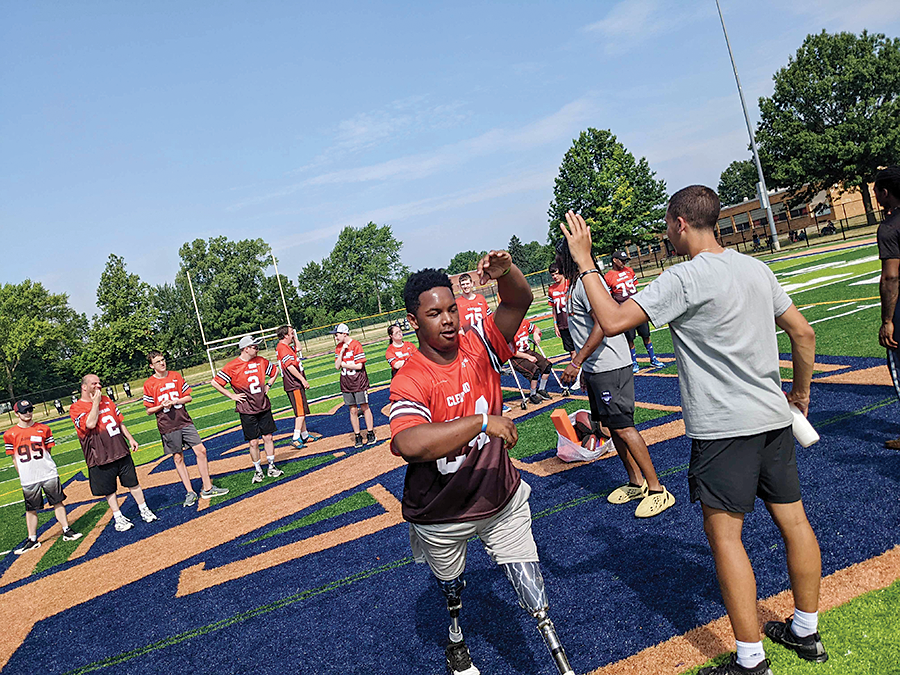
By Maggie Clautti, Manager of Youth Services, Achievement Centers for Children
Seventeen-year-old Isaiah Finney won third place in the seated shot put competition at the 2025 Ohio High School State Track Meet. Hearing the news, my excitement likely rivaled his mother’s. That’s because in his nine years with our adapted sports program, I have watched Isaiah blossom into an amazing athlete, participating in many activities.
The magic of adapted sports is not going to make every athlete a state-level competitor like Isaiah — but it will make every athlete feel welcome and empowered to be the best athlete they can be.
Benefits of inclusion in sports
Mental Health — Multiple studies demonstrate that youth adapted sports programs decrease anxiety and depression, while increasing self-esteem and emotional regulation.
Social Health — An apprehensive, withdrawn athlete in his or her first week becomes excited to reunite with newfound friends in the following weeks, after finally feeling part of a team. Adapted Sports programs welcome athletes as young as 6 through adulthood, with older athletes often mentoring younger ones.
Physical Health — Making fields and courts accessible and welcoming motivates adapted sports athletes to attend. Physical activity is especially important for athletes with disabilities. Adapted Sports has been proven to increase muscular and gross motor strength, and endurance.
Self-Esteem and Independence — There is a newfound pride and sense of independence that come from being part of an adapted sports team — gifts that extend far beyond the athletic arena.

